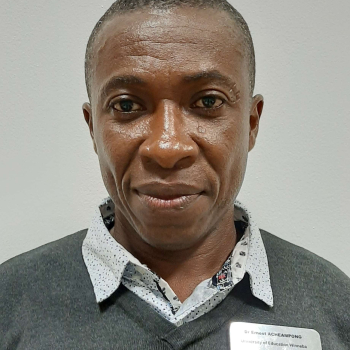Young African athletes: Challenges and constraints of the ‘unknown’ career abroad

| +233 503962283 | |
| eyacheampong@uew.edu.gh |
Young African athletes: Challenges and constraints of the ‘unknown’ career abroad
Scholars have documented certain reasons behind African footballers’ migration to leagues in the Global North. These include economic potential, insensitivity to players’ welfare, lack of professionalism and opportunities at home, unavailability of sporting facilities, and the influence of families in shaping the decision of players to play sports particularly, football. The African youth can face migration barriers because of a lack of information, knowledge and understanding of their host country. This paper hopes to provide a supportive mechanism for migrant African youth athletes to adapt and cope with the ‘unknown' while plying their trade abroad. Interviews with a score of African professional players through their experiences and the literature on football migration contribute to understanding how young players can acclimatise and cope, as they pursue their international football dreams. Findings show that young players must prepare to deal with challenges such as cultural shock, racism and discrimination, unexpected injury and changes in team management by coping in order to achieve their professional dreams. Results indicate that players should have an understanding of the ‘transitional experience analysis’ which can support them to become successful while coping with those challenges without difficulty. The paper recommends that young players have access to information and awareness of supportive programmes and mechanisms (e.g., linguistic and cultural mediators) to assist their migrant integration with the team and into society. Again, professional clubs “hiring” and/or “sending” and intermediaries (e.g., agents, club officials) of these players should commit to preparing and supporting their settlements in their new environment.
